Ceresit CM 11 glue: properties and application
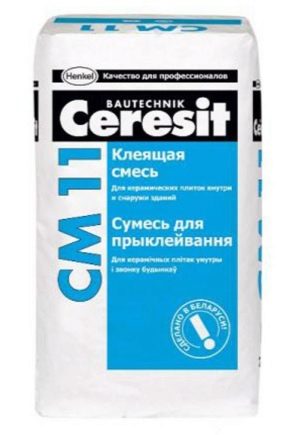
When working with tiles, materials for various purposes are used. They allow you to qualitatively prepare the base, attach different cladding such as ceramics, natural stone, marble, mosaics and fill the tile joints, providing the product with airtight protection from moisture and fungus. The reliability and durability of tile laying largely depends on the quality of the tile adhesive and grout.
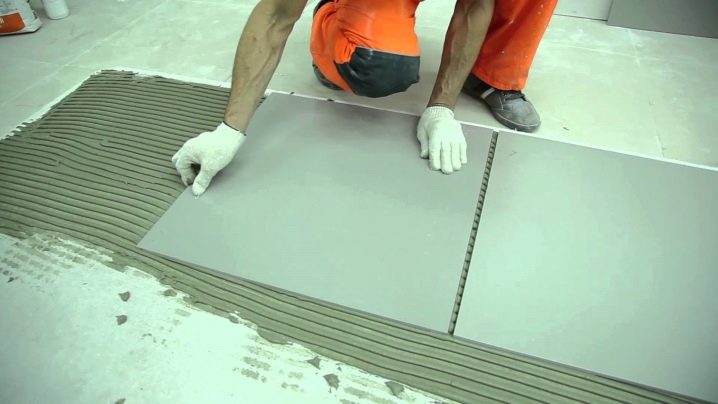
Among the ancillary products for the renovation of reputable brands, Henkel's complete Ceresit systems deserve special attention, designed to work with all kinds of cladding materials for interior and exterior decoration. In this article, we will dwell on the Ceresit CM 11 base adhesive mixture, consider the variations of this product, their working properties and the nuances of use.
Peculiarities
Ceresit tile adhesives differ in the field of application, which can be found on the labeling on the packaging:
- CM - mixtures with which the tiles are fixed;
- SV - materials for fragmentary repair of cladding;
- ST - assembly mixtures, with the help of which they arrange external thermal insulation on the facades.
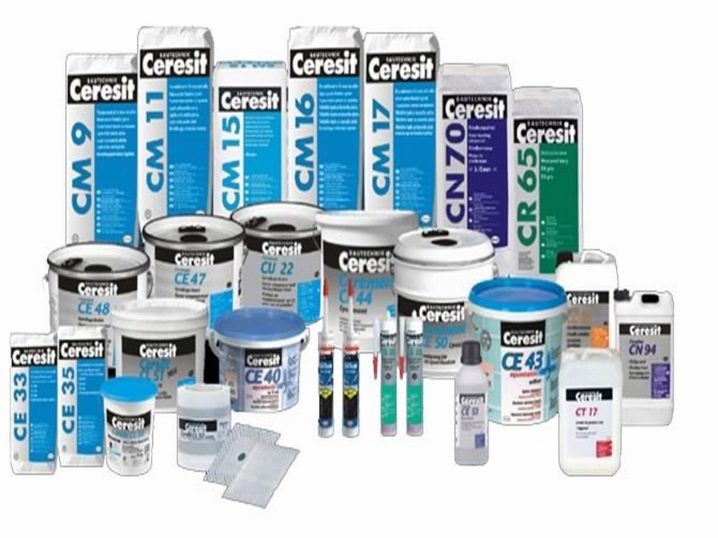
Ceresit CM 11 adhesive - a material with a cement binder as a base, the addition of mineral fillers and modifying additives that enhance the technological properties of the final product. Porcelain stoneware or ceramics are fixed on it when carrying out internal or external types of finishing of premises at objects of housing and civil purposes and the production sector. It can be combined with any typical non-deformable mineral substrates: cement-sand screed, concrete, plaster leveling coatings based on cement or lime. Recommended for rooms experiencing constant or short-term regular exposure to the aquatic environment.
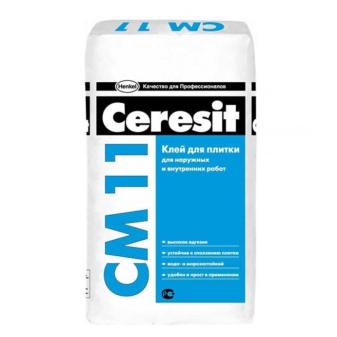
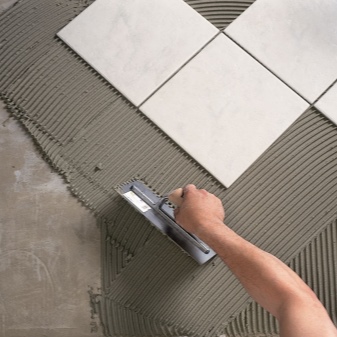
CM 11 plus is used for cladding with ceramics or natural stone with dimensions of maximum 400x400 and a water absorption value of 3 percent. According to SP 29.13330.2011. Floors ", it is also allowed to plant tiles (porcelain stoneware, stone, clinker) with a water absorption capacity of less than 3% for floor cladding without electric heating. In these cases, the composition is used exclusively when carrying out interior finishing work in household and administrative premises, that is, where operation does not imply high mechanical loads.
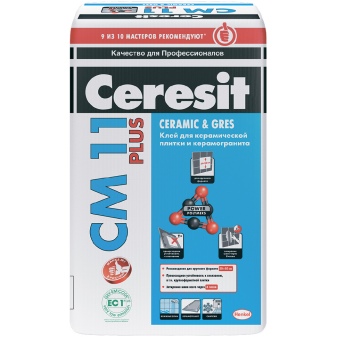
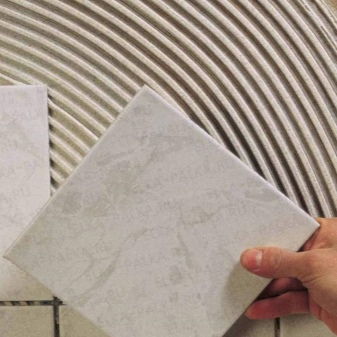
Views
For the installation of screeds on bases with internal heating and work with deformable bases in the Ceresit - Henkel line of adhesives there are highly elastic mixtures CM-11 and CM-17 with low-modulus CC83 filler. By adding this elastomer, the final product acquires the ability to withstand shock and alternating loads. In addition, the presence of an elasticizer in the composition prevents the formation of microcracks in the binder base.
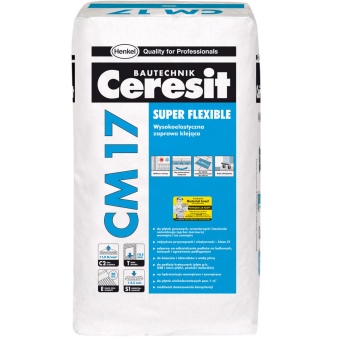
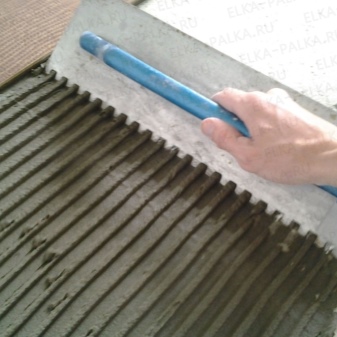
Highly elastic SM-11 can:
- to carry out external facing of floors and walls with any existing types of tiles;
- arrange screeds on bases with underfloor heating;
- to make cladding of plinths, parapets, external flights of stairs, private areas, terraces and verandas, flat roofs with an angle of inclination up to 15 degrees, outdoor and indoor pools;
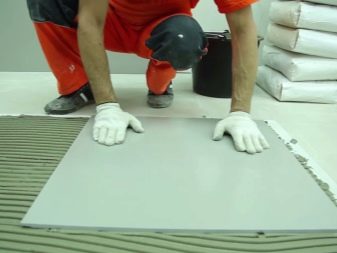
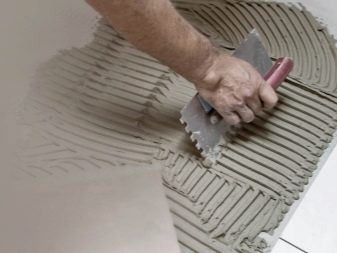
- to veneer deformable foundations made of fiberboard / chipboard / OSB boards and gypsum plasterboards, gypsum, anhydrite, lightweight and cellular concrete bases or recently poured under the age of less than 4 weeks;
- work with ceramics, including glazed ones outside and inside;
- perform tiling work on surfaces with durable paint, gypsum or anhydrite coatings that have good adhesion.
For cladding with marble, light-colored clinker, glass mosaic modules, it is recommended to use CM 115 white. Large-format floor tiles are laid using CM12.
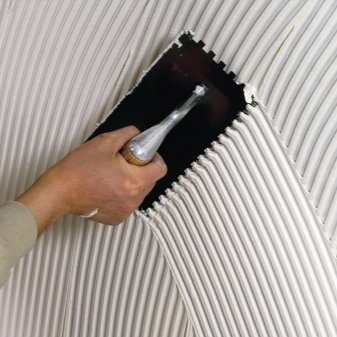
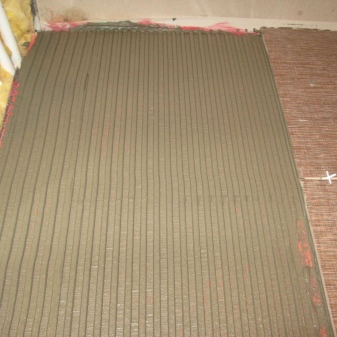
Advantages
Sustained interest in Ceresit CM 11 due to a set of attractive working qualities, including:
- water resistance;
- frost resistance;
- manufacturability;
- stability when facing vertical surfaces;
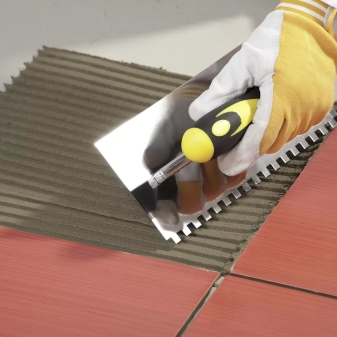
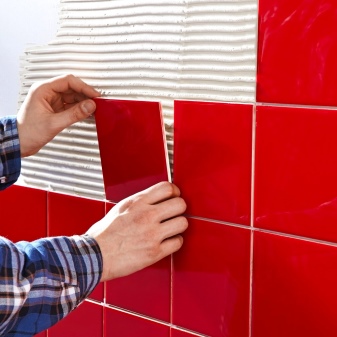
- environmentally friendly composition that excludes harm to health;
- incombustibility in accordance with GOST 30244 94;
- ease of use and long correction period;
- versatility of use (suitable for tiling when performing interior and exterior works).
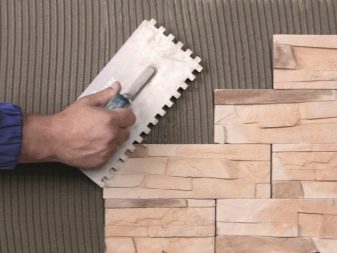
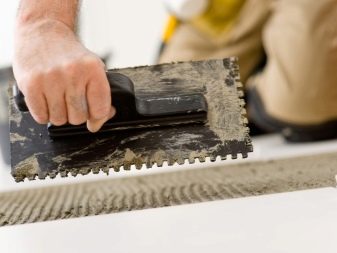
Specifications
- Dosage of liquid when mixing: to prepare a working solution, a 25 kg bag of a powder product is mixed with 6 liters of water, that is, approximately in proportions of 1: 4. Number of ingredients for preparing a solution with CC83: powder 25 kg + liquid 2 liters + elastomer 4 liters.
- The working solution production time is limited to 2 hours.
- Optimal working conditions: t air and working surface up to + 30 ° C degrees, relative humidity less than 80%.
- The open time is 15/20 minutes for normal or superelastic mix.
- Allowable adjustment time is 20/25 minutes for standard or highly elastic formulations.
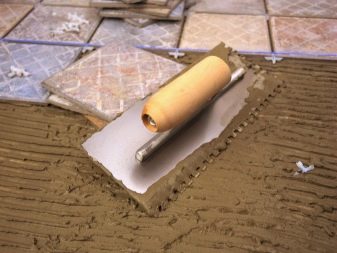
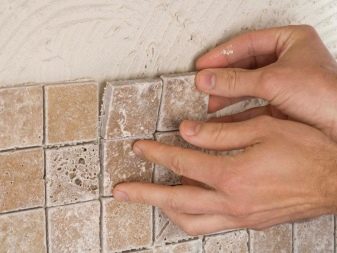
- The sliding limit of the tiled cladding is 0.05 cm.
- Grouting of joints when working with a compound without an elastomer is performed after a day, in the case of using a highly elastic compound - after three days.
- Adhesion to concrete for glue without CC83 is more than 0.8 MPa, for elastic - 1.3 MPa.
- Compressive strength - more than 10 MPa.
- Frost resistance - at least 100 freeze-thaw cycles.
- The operating temperature range varies from -50 ° С to + 70 ° С.
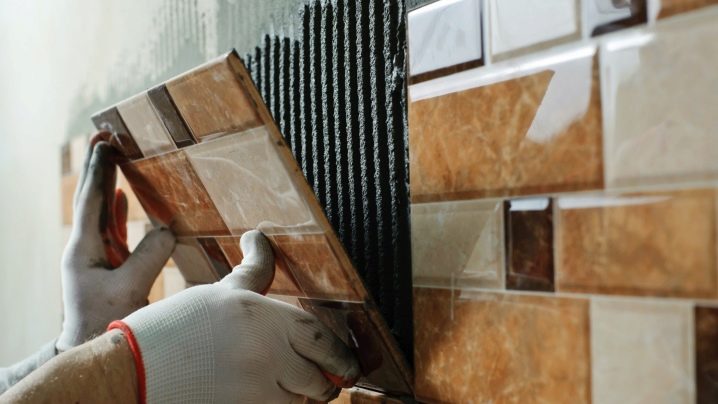
The mixtures are packed in multilayer paper bags of different sizes: 5, 15, 25 kg.
Consumption
There are most often discrepancies between the theoretical rates of consumption of the adhesive mixture and the practical indicators. This is due to the fact that the consumption per 1m2 depends on the size of the tile and trowel-comb used, as well as on the quality of the base and the level of professional training of the master. Therefore, we will give only approximate values \ u200b \ u200bof the consumption with a thickness of the adhesive layer of 0.2-1 cm.
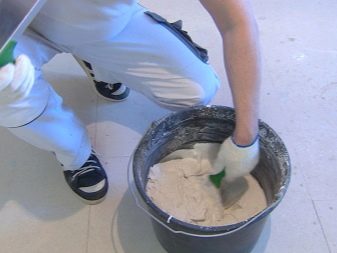
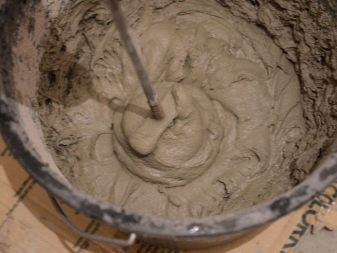
Tile length, mm | Dimensions of spatula-comb teeth, cm | Consumption rates, kg per m2 | |
SM-11 | SS-83 | ||
≤ 50 | 0,3 | ≈ 1,7 | ≈ 0,27 |
≤ 100 | 0,4 | ≈ 2 | ≈ 0,3 |
≤ 150 | 0,6 | ≈ 2,7 | ≈ 0,4 |
≤ 250 | 0,8 | ≈ 3,6 | ≈ 0,6 |
≤ 300 | 1 | ≈ 4,2 | ≈ 0,7 |
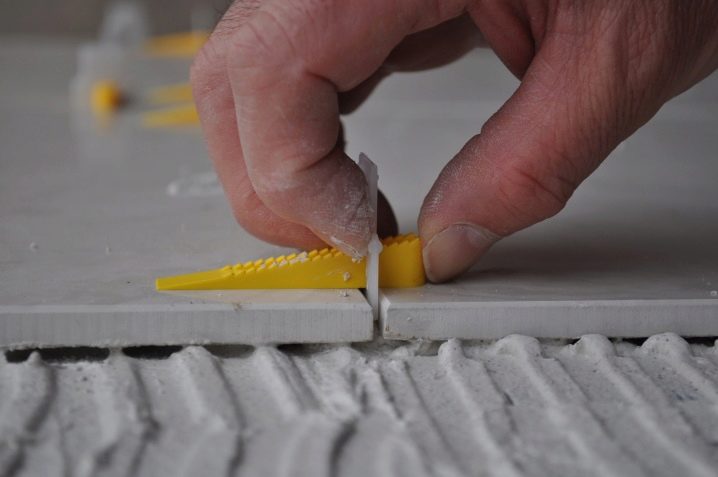
Preparatory work
Facing works are performed on substrates with a high load-bearing capacity, treated in accordance with sanitary standards, which means cleaning them from contaminants that reduce the adhesive properties of the adhesive mixture (efflorescence, grease, bitumen), removing fragile crumbling areas and dedusting.
To level the walls, it is advisable to use Ceresit CT-29 repair plaster mixture, and for floors - Ceresit CH leveling compound. Plastering work must be carried out 72 hours before tiling. Construction defects with a height difference of less than 0.5 cm can be corrected with a mixture of CM-9 24 hours before fixing the tile.
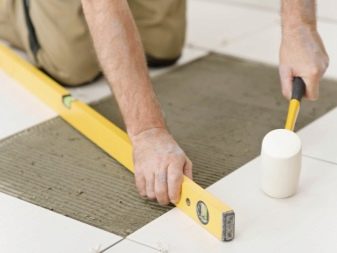
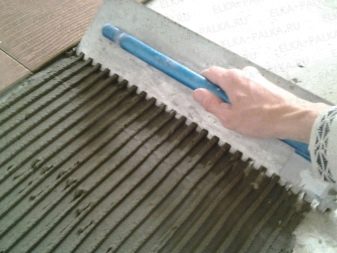
For the preparation of typical substrates, use CM 11. Sand-cement, lime-cement plastered surfaces and sand-cement screeds older than 28 days and humidity less than 4% require treatment with CT17 soil, followed by drying for 4-5 hours. If the surface is dense, solid and clean, then you can do without a primer. In cases of preparation of atypical bases, a combination of CM11 with CC-83 is used.Plastered surfaces with a moisture content of less than 0.5%, wood-shaving, particle-cement, gypsum bases and bases made of light and cellular or young concrete, whose age does not exceed a month, and the moisture content is 4%, as well as sand-cement screeds with internal heating priming with CN94 / CT17 is recommended.
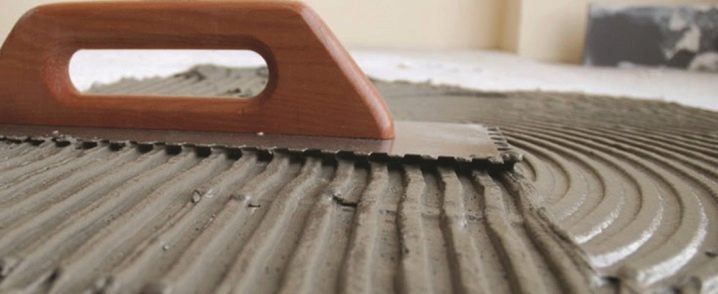
Claddings made of stone tiles or stone imitations, surfaces treated with high-adhesion water-dispersible paintwork materials, floating screeds made of cast asphalt need to be treated with CN-94 primer. Drying time is at least 2-3 hours.
How to breed?
To prepare a working solution, take water t 10-20 ° C or an elastomer diluted with water in proportions of 2 parts of CC-83 and 1 part of liquid. The powder is dosed into a container with liquid and immediately mixed with a construction mixer or a drill with a spiral nozzle-mixer for solutions of a viscous consistency at 500-800 rpm. After that, a technological pause of about 5-7 minutes is maintained, due to which the mortar mixture has time to mature. Then it only remains to mix it again and use it as directed.
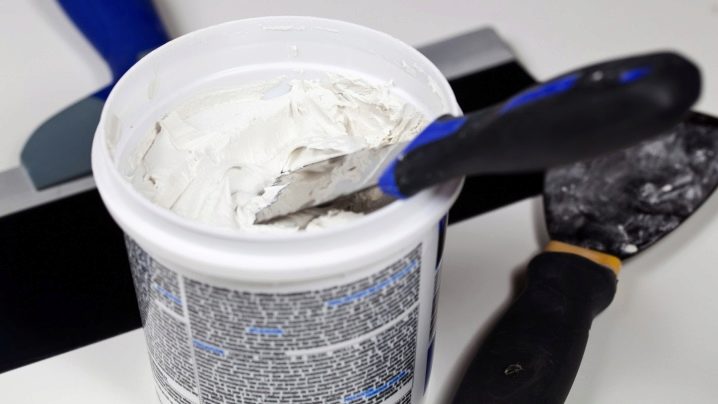
Recommendations for use
- A notched trowel or a notched trowel is suitable for applying cement tile adhesive, in which the smooth side is used as the working side. The shape of the teeth should be square. When choosing the height of the tooth, they are guided by the tile format, as shown in the above table.
- If the consistency of the working solution and the height of the teeth are selected correctly, then after the tiles are pressed to the base, the surface of the walls to be faced should be covered with an adhesive mixture by at least 65%, and floors - by 80% or more.
- When using Ceresit CM 11, the tiles do not need to be soaked beforehand.
- Butt-laying is not allowed. The width of the seams is chosen based on the tile format and specific operating conditions. Due to the high fixing ability of the glue, there is no need to use ditches, which provide evenness and the same width of the tile gap.
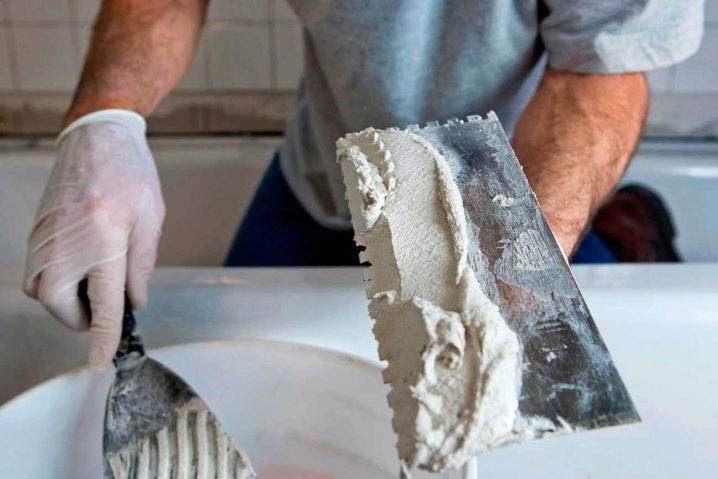
- In cases of stone cladding or facade work, a combined installation is recommended, which implies additional application of an adhesive mixture to the mounting base of the tile. When forming an adhesive layer (thickness up to 1 mm) with a thin spatula, the consumption rate will increase by 500 g / m2.
- The joints are filled with the appropriate grouting mixtures under the CE marking after 24 hours from the end of the facing work.
- To remove fresh residues of the mortar mixture, water is used, while dried stains and drips of the solution can be removed exclusively with the help of mechanical cleaning.
- Due to the content of cement in the composition of the product, an alkaline reaction occurs when it comes into contact with a liquid. For this reason, when working with CM 11, it is important to use gloves to protect the skin and avoid contact with the eyes.
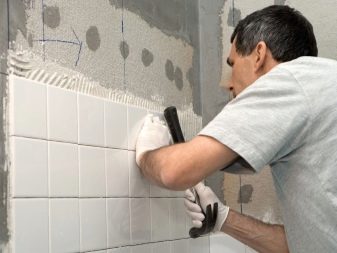
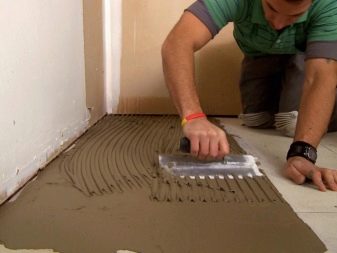
Reviews
Basically, the feedback from users of Ceresit CM 11 is positive.
Of the advantages, buyers most often note:
- high quality gluing;
- profitability;
- long service life;
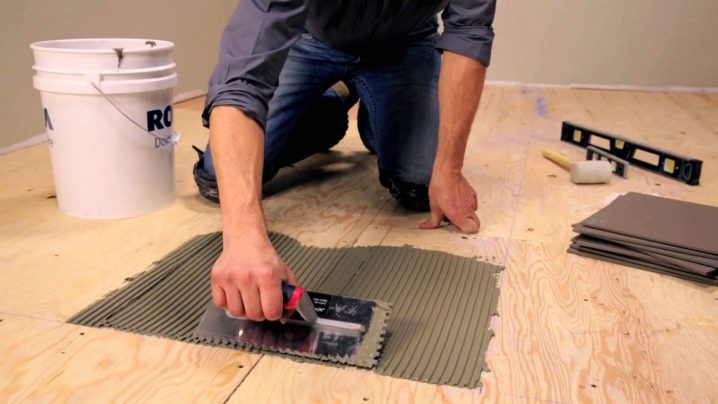
- reliability of fixing heavy tiles (CM 11 does not allow it to slip);
- comfort during work, since the mixture is stirred without problems, does not spread, does not form lumps and dries quickly.
This product has no serious drawbacks. Some are unhappy with the high price, although others consider it to be quite justified, given the high performance of CM 11. Most users advise to purchase adhesive mixtures from official Ceresit dealers, as otherwise there is a risk of buying a fake.
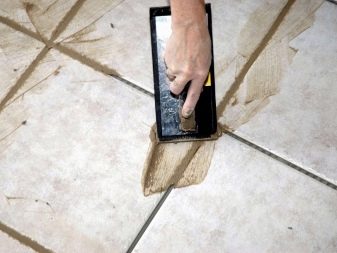
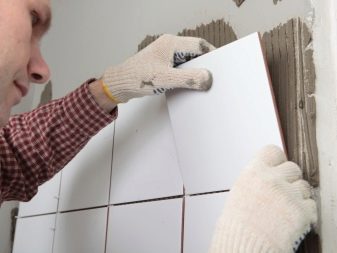
For the properties and application of Ceresit CM 11 glue, see the following video.













The comment was sent successfully.